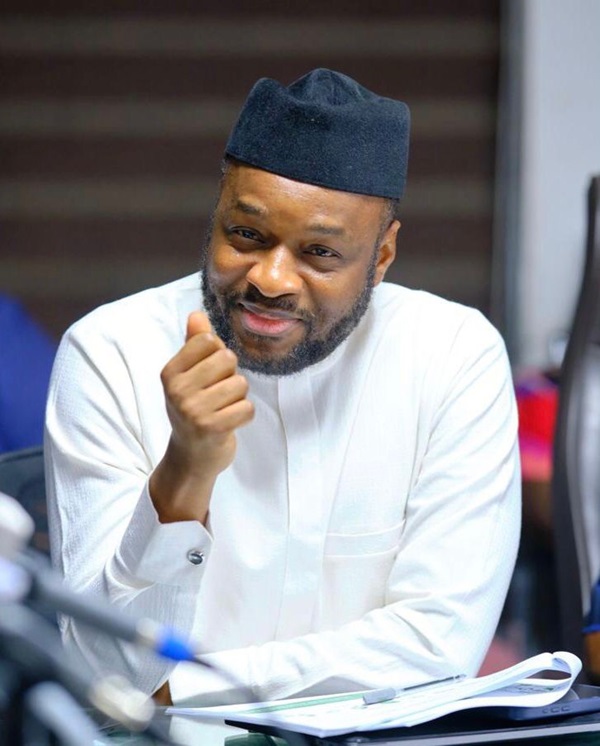
The Sector Wide Approach (SWAp) has spotlighted the transformative strides achieved under President Bola Tinubu’s ‘Renewed Hope’ agenda, underscoring the pivotal role of Nigeria’s ₦1.17 trillion health budget – the highest in the nation’s history.
In an interview with journalists in Abuja, the national coordinator of SWAp, Dr. Muntaqa Umar-Sadiq highlighted the administration’s commitment to healthcare through the National Health Sector Renewal Investment Initiative (NHSRII) and a compact signed with all 36 states and the Federal Capital Territory (FCT). These initiatives aim to establish an equitable, resilient, and accessible health system for every Nigerian.
“At the heart of these reforms is the revitalization of over 2,100 primary healthcare centers (PHCs), with another 3,000 set to be operational by the end of 2025,” Umar-Sadiq revealed. These upgrades ensure that no Nigerian has to travel more than five kilometers to access essential healthcare.
“For women like Hadiza in Gombe, who no longer needs to walk 10 kilometers to a clinic while pregnant, these changes are life-saving,” he added.
This progress has been powered by a ₦46 billion direct financing facility, disbursed through the revamped Basic Health Care Provision Fund (BHCPF) to over 8,000 facilities. The introduction of tools like Joint Annual Reviews (JARs) and real-time dashboards has enhanced accountability and resource efficiency.
The Maternal Mortality Reduction Innovation Initiative (MAMII) is addressing Nigeria’s maternal and newborn health crisis in 172 high-burden local government areas. Poor and vulnerable women now have access to free cesarean sections under the expanded National Health Insurance Authority (NHIA) package, while the National Emergency Medical Service and Ambulance System (NEMSAS) ensures emergency transport.
“Amina, a young mother from Bauchi State, is among thousands whose lives have been saved through these interventions,” Umar-Sadiq noted.
Nigeria has intensified its fight against infectious diseases such as malaria, tuberculosis, and HIV/AIDS. Over one million doses of the R21 malaria vaccine have been rolled out in high-burden states like Kebbi and Bayelsa, supported by partnerships with GAVI and The Global Fund.
Additionally, emergency operations centres (EOCs) have been established in all geopolitical zones and enhanced genomic surveillance systems now allow for faster detection of diseases like diphtheria and monkeypox. The Nigeria Climate Change and Health Vulnerability Assessment Report has further positioned the country as a leader in integrating climate resilience into its health systems.
Over 53,000 frontline health workers have been retrained, with a target of 120,000 within three years. The Presidential Initiative for Unlocking the Healthcare Value Chain (PVAC) has catalysed $1 billion in investments and finalised 74 business cases to boost local production of pharmaceuticals and medical devices.
Umar-Sadiq also highlighted President Tinubu’s appointment as the African Union Champion for Health Workforce Development, reflecting Nigeria’s leadership in addressing workforce challenges across the continent. Similarly, Tinubu’s ife, Senator Remi Tinubu, now serves as the National and Global Champion for Tuberculosis, amplifying the nation’s voice in tackling this global health challenge.
Despite these achievements, Umar-Sadiq acknowledged persistent challenges, including geographic disparities in healthcare access, high out-of-pocket expenditures, and the rising burden of non-communicable diseases.
However, he expressed optimism, citing growing public confidence in the health system, which increased from 37% in 2023 to 54% in 2024.
“These reforms are anchored in the leadership and vision of His Excellency, President Bola Ahmed Tinubu, whose pledge—that no Nigerian woman will lose her life giving birth, no child will suffer for lack of care, and no family will face financial ruin from illness—continues to inspire us,” he said.
On December 12, 2023, President Tinubu declared that “health is back on the front burner of Nigeria’s policy priorities,” signalling a renewed commitment to the well-being of Nigerians. This bold vision spurred the launch of the NHSRII and the signing of a Compact with all states and the FCT, marking the beginning of a transformative journey to rebuild Nigeria’s health system.
The NHSRII provides a unified framework to eliminate inefficiencies, reduce fragmentation and align efforts across all levels of government, the private sector and development partners. Guided by the principle of “one vision – one conversation, one budget, one report,” the NHSRII has mobilised over $3 billion in external funding, with significant domestic investments projected over four years.
With bold reforms, increased investments, and visionary leadership, Nigeria is building a health system that leaves no one behind. The SWAp emphasises that the renewed focus on health under President Tinubu’s administration is not just about addressing immediate challenges but also about laying the foundation for a resilient and equitable system that will serve future generations.
“Health is the cornerstone of sustainable development,” Umar-Sadiq said. “By prioritising healthcare, Nigeria is not just saving lives – it is creating opportunities, building trust and setting an example for the continent.”
The reforms championed by the ‘Renewed Hope’ agenda signal a new era for Nigeria’s health sector, offering hope and opportunity for all.

